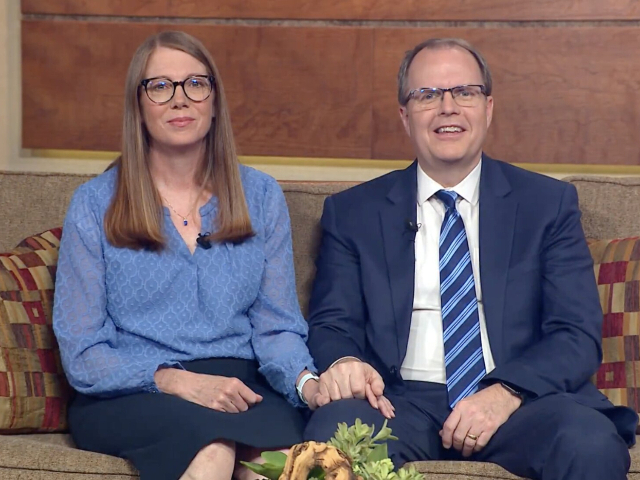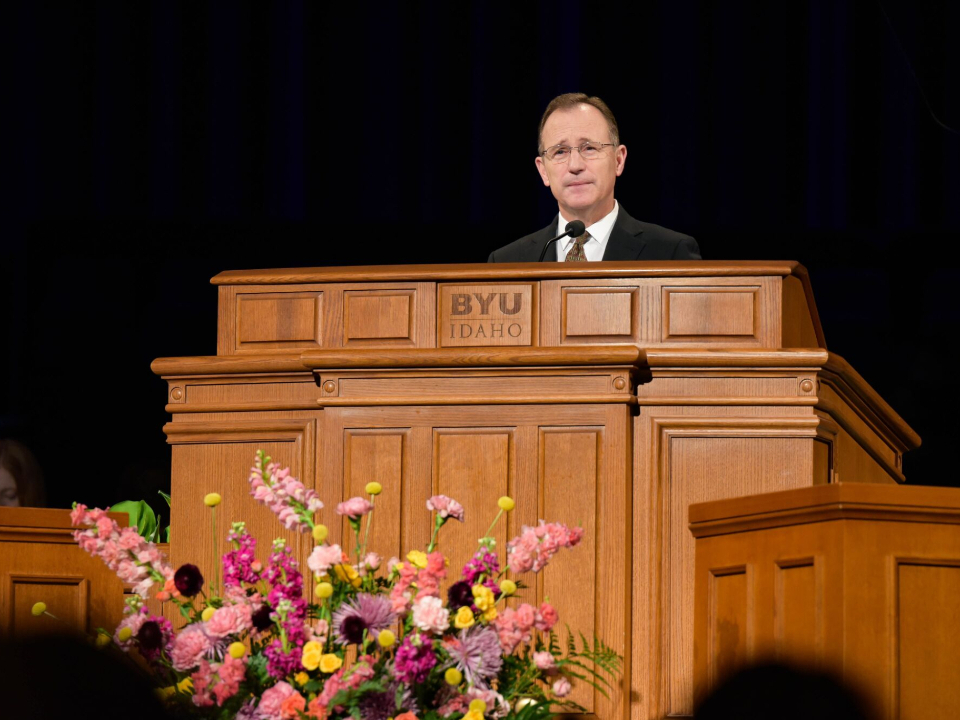
This story appears here courtesy of TheChurchNews.com. It is not for use by other media.
By Rachael Sterzer Gibson, Church News
What creates a sure foundation for a testimony, one that can withstand reasons to doubt?
The answer is Jesus Christ, Elder Kyle S. McKay declared during a BYU–Idaho devotional on Tuesday, April 25. “Those who build upon Jesus Christ will not, cannot fall.”
Opposition in All Things
As individuals increase efforts to increase testimony, they will be confronted with reasons to doubt. Elder McKay encouraged listeners not to be shaken by such evidence or arguments.
“‘There must needs be an opposition’ — or in other words, an opposite — ‘in all things’” (2 Nephi 2:11). Why? “In short, agency — that is our ability, our responsibility, to choose for ourselves — is essential in all things, including and beginning with belief,” Elder McKay explained.
There must be opposites from which to choose — reasons to believe and reasons to doubt. “God does not give us doubts, nor is He the author of error, but He allows them because it is absolutely critical that you and I choose for ourselves to believe or not to believe.”
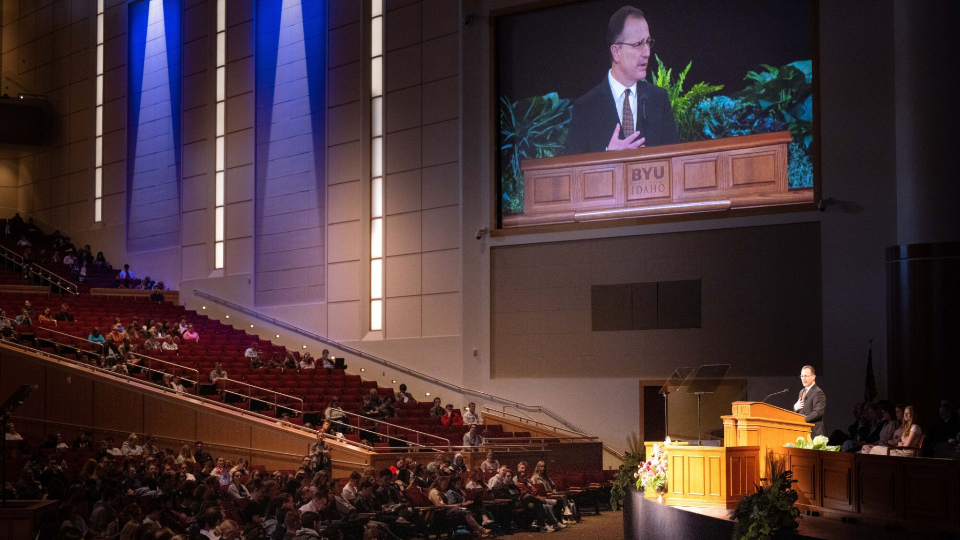
By acknowledging the existence of reasons to doubts, Elder McKay said, he is not legitimizing them, advocating or excusing doubt itself. “Jesus said, ‘Doubt not’ (Doctrine and Covenants 6:36). In the face of reasons to doubt, doubt not.”
Satan makes reasons to doubt enticing and flattering. “If the prince of darkness can transform himself into an angel of light, then surely he can put forth ideas and arguments that appear enlightened,” Elder McKay said.
One of Satan’s tactics is to project natural human tendencies on God. “We sometimes try to create or re-create God in our image so that He and His doctrine align with our thoughts, our ways, our shifting sympathies and evolving values.”
Another of Lucifer’s tactics is to use human error to disprove or diminish God’s truth, Elder McKay said. “We sometimes have an unrealistic expectation that God must somehow search out or raise up errorless people to do His work and lead His Church.”
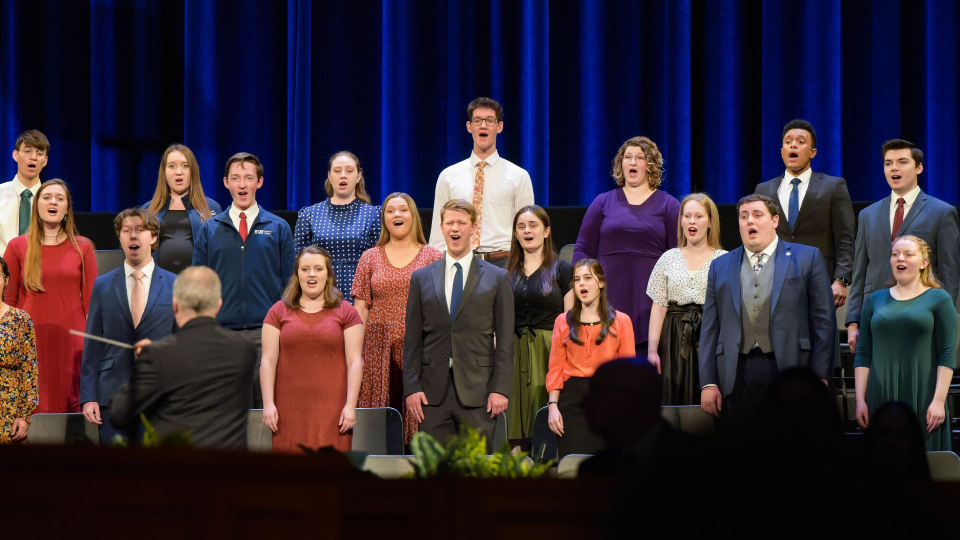
For example, some have interpreted Wilford Woodruff’s comment that “the Lord will never permit me or any other man who stands as President of this Church to lead you astray” to mean the Lord will never allow Church leaders to make a mistake.
That has never been the case, Elder McKay said. “The scriptures repeatedly show that God does His work through humans, and those humans make mistakes, sometimes even while God is using them for His purposes.”
In the case of Peter, who cut off someone’s ear and denied Christ, and Joseph Smith, who could be “mistake-prone at times, just like the ancients,” God called and magnified them to lead His Church.
“And what about you? If the truthfulness of this Church or your beliefs were judged by your errors, would anyone ever believe what you believe?” Elder McKay asked.
While one “can’t hide from the humanness of humans,” it’s unproductive, Elder McKay said, to make it an emphasis of study. “You will never come to know and understand the truths of God by studying the errors of man. Nor has God appointed you, me or anyone to be an arbiter of error in His leaders, scrutinizing every word or act of apostles and prophets to make sure they fit within our current understanding of correctness. That is not His plan; that is not His order.”
So what should be individuals’ foundation? “If it is not Jesus Christ, I invite you to immediately make it Jesus Christ,” Elder McKay said.
Spiritual Work
In order to receive a sure and unshakable witness of Jesus Christ, individuals must, as President Nelson has urged, “do the spiritual work required” (“Revelation for the Church, Revelation for Our Lives,” April 2018 general conference) to receive a witness. “This work most assuredly includes intently studying the Book of Mormon,” Elder McKay said.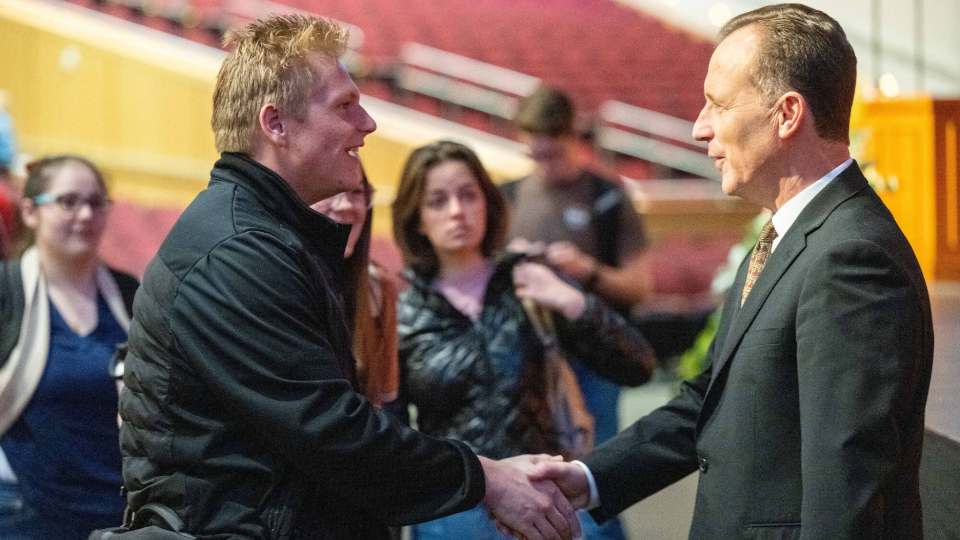
He then invited listeners to read the Book of Mormon for its primary purpose — to convince Jew and gentile that Jesus is the Christ. “I promise that as you do this with an open, honest heart, you will have an experience with Jesus that you have never had before. It will be sweet, convincing and lasting, and you will become converted unto the Lord, with a naturally occurring desire to become united unto His Church.”
Elder McKay cautioned that asking or reading these things from a position of doubt or skepticism will not summon a response from heaven.
“Answers from God in response to earnest inquiries come by the power of the Holy Ghost, speaking to your mind and to your heart — your spiritual sense of learning. Trying to understand the things of God by some way other than the Spirit of God is like trying to understand the flavor of food by listening to it. You’re using the wrong sense,” Elder McKay said.
Become acquainted with and fluent in the language of the Spirit, he urged. The light and knowledge needed to make one’s foundation sure and certain will come over time and in increments. “I promise you that these increments will aggregate into a witness of Jesus Christ and His gospel that will be sure and certain, even as reasons to doubt continue to swirl and hiss about you daily.”
Having perplexing questions from reasons to doubt is not a problem, Elder McKay said. “But please understand, finding answers to these perplexing questions ultimately is not the solution. The solution is a sure and certain foundation whereon if you build, you cannot fall. That foundation is Jesus Christ and His gospel, the fullness of which is found and taught in this Church.”
Elder McKay, a General Authority Seventy and the Church historian and recorder, spoke to students and faculty gathered in the I-Center on the Rexburg, Idaho, campus, about the need for a “sure and certain foundation” and reiterated the invitation of President Russell M. Nelson to “take charge of your testimony.”
Elder McKay asked his mostly young adult listeners, “Is your testimony of Jesus Christ and His restored gospel strengthened by, but not dependent on, others? Is your foundation sure enough and certain enough that you can remain unshaken even if someone you admire in the faith makes a mistake now or in the future, or in the past? Is your knowledge and testimony of truth strong enough that you can stare down compelling reasons to doubt and choose to believe?”
